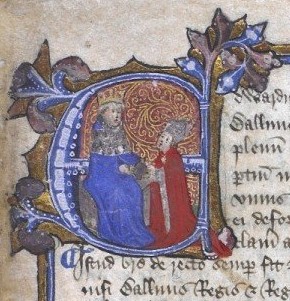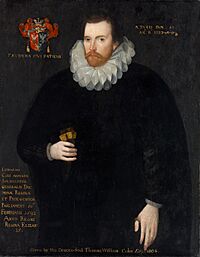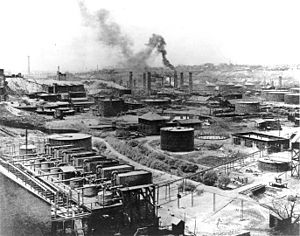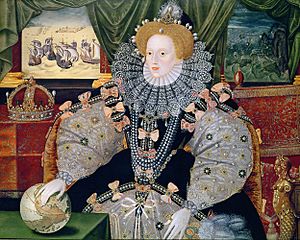History of competition law facts for kids
The history of competition law is all about how governments have tried to make sure businesses play fair. These rules, sometimes called competition or antitrust laws, help make sure you get good prices and lots of choices when you buy things.
The idea of fair competition is really old! It goes back to ancient Rome, where leaders tried to stop prices from jumping around too much and prevent unfair business tricks. In Europe during the Middle Ages, kings and queens often fought against monopolies – when one company controls everything.
Later, in England, a legal idea called "restraint of trade" became important. This idea said that agreements stopping people from doing business freely were usually wrong. This old English rule helped shape the modern antitrust laws in the United States. After World War II, these American laws greatly influenced how Europe developed its own competition rules. Today, countries around the world are working together to enforce these laws in our global economy.
Contents
Early Rules for Fair Business
Rules about fair business have been around for more than 2,000 years! Roman Emperors and kings in the Middle Ages used special taxes or rules to keep prices steady or help local businesses.
People started to seriously study "competition" in the 1700s, with thinkers like Adam Smith and his book The Wealth of Nations. Back then, different names were used for these rules, like "restrictive practices" or "laws against monopolies."
Roman Laws
One of the oldest examples of competition law comes from the Roman Republic, around 50 BC. It was called the Lex Julia de Annona. This law protected the grain trade and gave big fines to anyone who purposely stopped supply ships.
Later, around 301 AD, Emperor Diocletian made an "Edict on maximum prices". This law even had a death penalty for anyone who broke the price rules, for example, by buying up all the goods to make them scarce.
The most important Roman law was made by Emperor Zeno in 483 AD. It said that any business groups or monopolies, whether private or even granted by the Emperor, could lose their property and be sent away. Zeno even canceled all special business rights given before.
Middle Ages Business Rules

In England, rules against monopolies were in place even before the Norman Conquest in 1066. The famous Domesday Book mentioned "foresteel" (also called forestalling). This was when someone bought up goods before they reached the market, then sold them at much higher prices. This was seen as a serious crime.
People cared a lot about fair prices. In 1266, a law under King Henry III set prices for bread and ale based on grain prices. If you broke the law, you could be fined or put in a pillory (a wooden frame for public punishment). A law from the 1300s called forestallers "enemies of the whole country."
Under King Edward III, the Statute of Labourers in 1349 set wages for workers and said food should be sold at fair prices. If merchants overcharged, they had to pay the injured person double the amount they received. This idea is similar to "treble damages" in modern US antitrust law. Edward III also made a law against groups of traders working together to control prices:
"...no merchant or other shall make Confederacy, Conspiracy, Coin, Imagination, or Murmur, or Evil Device in any point that may turn to the Impeachment, Disturbance, Defeating or Decay of the said Staples..."
Other European countries had similar laws. For example, in Florence, Italy, laws in 1322 and 1325 followed Emperor Zeno's ideas against state monopolies. In 1553, King Henry VIII of England brought back rules for food prices to keep them stable. He said prices were often raised "by the Greedy Covetousness... more than upon any reasonable or just ground."
Around this time, groups of tradesmen and craftspeople called guilds became powerful. They had special rights and were often allowed to ignore the laws against monopolies. These special privileges for guilds weren't removed until 1835.
Renaissance Changes
The 15th century brought big changes to Europe. New lands were discovered, and wealth from overseas trade flowed into the economy. Business attitudes also started to shift.
In 1561, England introduced "Industrial Monopoly Licences," which were like early patents. These gave someone the sole right to make a certain product. However, by the time of Queen Elizabeth I, people felt these licenses were being misused just to protect special privileges, not to encourage new ideas.
When people protested in the House of Commons, Queen Elizabeth I suggested they take the issue to court. This led to an important case called the Case of Monopolies (or Darcy v Allin). The court decided that giving one person the sole right to make playing cards was wrong. The court said that monopolies usually cause:
- (1) prices to go up
- (2) quality to go down
- (3) workers to become jobless and poor.
This case temporarily stopped complaints about monopolies. But later, King James I started granting them again. In 1623, Parliament passed the Statute of Monopolies. This law mostly banned monopolies, but it still allowed patents (for new inventions) and the special rights of guilds.
Monopolies continued under later kings, especially as a way to make money for the government. In 1684, a case called East India Company v Sandys decided that exclusive rights to trade *outside* the country were okay, because only big companies could handle such trade.
In 1710, a new law was passed to deal with high coal prices caused by a monopoly in Newcastle. It said that "all... contracts... for Ingrossing Coals, or for restraining or hindering any Person... from freely... disposing of Coals... are hereby declared to be illegal."
When Adam Smith wrote Wealth of Nations in 1776, he was a bit doubtful that trade would ever be completely free. He thought that people's personal interests would always get in the way.
Restricting Trade Agreements

The English law of "restraint of trade" is a direct ancestor of today's competition laws. It focused on stopping agreements that were against public interest, unless they could be shown to be "reasonable." A "restraint of trade" is simply an agreement that tries to stop someone from doing business freely.
For example, in a famous case called Nordenfelt v Maxim, Nordenfelt Gun Co, a Swedish inventor sold his gun business and promised he "would not make guns or ammunition anywhere in the world, and would not compete with Maxim in any way." The court had to decide if this promise was fair.
Early on, courts were very strict. In 1613, a court said a carpenter who promised not to work from his house for 21 years could be held to that promise because the time and place were clear. But a famous judge, Chief Justice Coke, said that a person could not promise to stop using their trade *everywhere*.
Over time, as communication and trade grew, the law changed. By 1880, courts realized that a promise not to trade in a certain area might be okay, even if it was "unlimited in space," as long as it wasn't more than what was needed to protect the business. So, in the Nordenfelt case, the court said promising "not to make guns or ammunition anywhere in the world" was okay, but promising "not to compete with Maxim in any way" was too broad and unfair.
Modern Competition Law
Modern competition law really started with laws in the United States: the Sherman Act of 1890 and the Clayton Act of 1914. While other countries, especially in Europe, had some rules against monopolies, the U.S. laws had a huge impact on how competition law developed worldwide. After both World War II and the fall of the Berlin Wall, competition law got a lot of new attention and updates around the globe.
United States Antitrust Laws

The American term "anti-trust" came about because large American companies used "trusts" (a type of business arrangement) to hide their true business dealings. These big trusts became linked with huge monopolies, which many people saw as a threat to democracy and free markets. This led to the passing of the Sherman Act and Clayton Act.
These laws put into writing many of the old American and English common law ideas about restricting trade. Senator George Frisbie Hoar, who helped write the Sherman Act, said it "affirmed the old doctrine of the common law."
The Sherman Act's first two sections say:
"Section 1. Every contract, combination... or conspiracy, in restraint of trade or commerce... is declared to be illegal."
"Section 2. Every person who shall monopolize, or attempt to monopolize... any part of the trade or commerce... shall be deemed guilty of a felony..."
The Sherman Act didn't immediately change everything, but Presidents like Theodore Roosevelt and William Taft used it to sue many companies. The Clayton Act was added in 1914 to make the Sherman Act stronger. It listed specific unfair actions, like:
- charging different prices to different buyers (called price discrimination)
- making deals where a buyer can only buy from one seller (called exclusive dealings)
- mergers (when companies combine) that greatly reduce competition.
The Clayton Act also said that trade unions (groups of workers) were exempt from the law.
After World War II
After the First World War, countries started to follow the United States' lead in competition rules. Canada passed its Combines Investigation Act in 1923, and France strengthened its rules from 1810.
After World War II, the Allies (led by the U.S.) put strict rules on cartels (groups of businesses that secretly agree to control prices) and monopolies in Germany and Japan. In Germany, many believed that big cartels had made it easier for the Nazis to take control of the economy. In Japan, large family-controlled business groups called zaibatsu were easily manipulated by the government during the war. So, after the war, stricter controls, similar to American policies, were put in place in both countries.
However, many countries then focused on nationalisation, where the government took control of industries like coal, railroads, steel, and electricity. They believed that making these industries publicly owned would make them more accountable.
Countries in the Commonwealth of Nations were slow to create their own competition laws. The United Kingdom passed a less strict law in 1956. Australia introduced its Trade Practices Act in 1974. More recently, especially in Europe, there have been many updates to make laws fit modern ideas about competition.
European Union Competition Law
In 1957, six Western European countries signed the Treaty of the European Community (also called the Treaty of Rome). This group has grown into the European Union, with nearly half a billion citizens. Competition law is a key part of EU law because fair competition is seen as vital for creating a single market where trade flows freely.
One main rule is Article 81 EC, which deals with cartels and other agreements that limit competition. It says that:
"...all agreements between undertakings, decisions by associations of undertakings and concerted practices which may affect trade between Member States and which have as their object or effect the prevention, restriction or distortion of competition within the common market..." are forbidden.
Article 81(1) EC gives examples of serious forbidden actions, like fixing prices or sharing markets. Article 81(2) EC says such agreements are automatically void (meaning they have no legal power).
However, like the old Statute of Monopolies 1623, Article 81(3) EC allows for exceptions. If an agreement helps with new technology or distribution, gives consumers a "fair share" of the benefits, and doesn't unfairly remove competition, it might be allowed.
Article 82 EC deals with monopolies, or more accurately, companies that are very powerful in a market and use that power unfairly. Unlike U.S. antitrust law, EU law doesn't punish a company just for being big. It only steps in if a dominant company abuses its position. Examples of abuse listed in Article 82 EC include charging different prices to different buyers and making exclusive deals, similar to the U.S. Clayton Act.
The EU also has rules to control mergers (when companies combine). The main test is whether a merger that affects several EU countries might significantly harm fair competition.
Finally, Articles 86 and 87 EC regulate the government's role in the market. Article 86(2) EC says that rules can't stop a country from providing public services, but public companies must still follow the same competition rules as everyone else. Article 87 EC generally says that governments can't give unfair aid or subsidies to private companies that distort competition, but it allows exceptions for things like charities, natural disasters, or helping poorer regions.
Global Efforts for Fair Competition
Competition law has already become quite international, often following the U.S. model. But international organizations are also getting more involved. Groups like the United Nations Conference on Trade and Development (UNCTAD) and the Organisation for Economic Co-operation and Development (OECD) are active in discussions about how competition law should apply to both private and public industries worldwide.
After World War II, there was an idea for a global antitrust code, but it never became part of the World Trade Organization (WTO). Even so, discussions at WTO trade talks sometimes include the idea of enforcing competition law at a global level.
While it can't enforce laws itself, the International Competition Network (ICN) is a way for different countries' competition authorities to work together and coordinate their efforts.
See also
- Competition policy
- History of economic thought
- Unfair business practices
- Unfair competition
|
 | Victor J. Glover |
 | Yvonne Cagle |
 | Jeanette Epps |
 | Bernard A. Harris Jr. |


